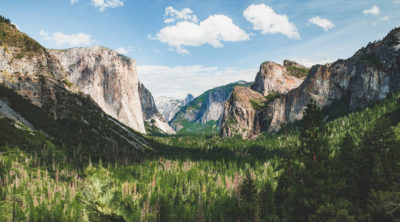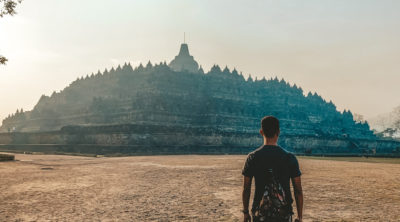
Leaving on a backpacking trip next month and have no idea what to pack? Refer to this winter backpacking checklist for essentials.
Winter truly is one of the most beautiful seasons for trekking. You don’t sweat much and nor is it very wet. There are, however, a few crucial things you need to remember. As it is going to be extremely cold, you need to carry the right type and amount of clothes. You will need one inner, thermal layer of clothing, through which you can get insulation. Above that, a lightweight layer of clothes will be required, which will regulate body temperature. Lack of water can lead to dehydration, which can further lead to drop in body temperature. So, drink lots of it. Make sure that your shoe laces or gloves are not too tight; they can constrict blood flow.
Checklist
- Waterproof/breathable jacket and pants
- Insulated parka
- Wool clothing
- Fleece clothing
- Synthetic hiking pants
- Base thermal layer
- Warm coat (down or polyester filled)
- Mittens or gloves (preferably wool)
- Socks with extra set
- Insulated waterproof hiking boots or gaiters (depending on type of backpacking)
- Sleeping bag
- Sleeping bag liner
- Air pump
- Pillow
- 80-liter backpack
- Flashlight
- Extra batteries
- Knife or multi-tool
- Snow shovel
- Balaclava
- Water filter or iodine drops/tablets
- First aid kit
- Repair kit
- Utility bags
- Insect repellent
- Toilet paper
- Camera
- Lighter and waterproof matches
- Tent (only after asking a professional; varies according to needs)
- Bivy sack (alternative to a tent, specially if there isn’t much snow)
- Trekking poles
- Rope (for clothesline or bear bagging)
- Whistle
- Toiletries (razor, toothbrush, etc.)
- Sunscreen (SPF 15+)
- Spoon, bowl, mug
- Cooking pots
Additional Tips
☑ Backpacking during winter means having shorter days to travel as much as you can. This means, you have to make the most out of sunlight time.
☑ The snow is just as unpredictable as the rain. Always inform a couple of people about your route. Don’t forget to carry extra energy bars.
☑ Cold temperatures are said to decrease battery life. Always keep your batteries inside warm clothes, when not in use.
☑ Carry foods that have proteins, fats, and carbohydrates; they all provide energy.
☑ Symptoms such as continuous shivering, a slurred speech, or lethargy might indicate hypothermia. Stay warm throughout your trip as a precautionary measure.
☑ If you’re traveling to great heights, make a camp base at mid-level, acclimatize to a height for sometime, and then climb higher.
☑ A frostbite can also affect your nose and face. Remember to keep these areas warm as well. Using a balaclava throughout the trip can help.
With this checklist and these tips, your winter backpacking trip will be smooth. Also, always remember to take a paper map; don’t rely on network while visiting secluded destinations.







